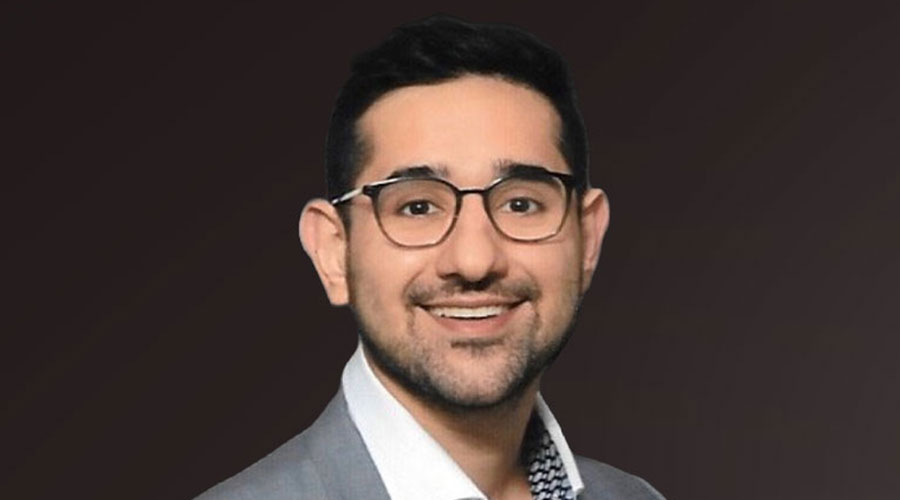-
-
-
-
-
-
"Translational researchon PVD is important!"
Karin Tran-Lundmark – Pediatric Cardiologist
-
-
"Exercise and sports cardiology for PH."
Guido Pieles Pediatric Cardiologist
-
"Rheumatic heart disease causes PH!"
Ana Olga Mocumbi Cardiologist
-
"Pulmonary Hypertension is a challenge for our society."
Henning Schröder Attorney
-
"No cure is simply not good enough."
Georg Hansmann Pediatric Cardiologist
-
"Awareness for PVD is the first step."
Philipp GrätzelMedical Journalist
-
"Translational research on PVD is important!"
Karin Tran-Lundmark Pediatric Cardiologist
-
"Improving PH treatment is the goal we aim for."
Peter Zartner Pediatric Cardiologist
Who we are
The European Pediatric Pulmonary Vascular Disease Network e.V. is a non-profit organization that was established on May 21, 2015 in Prague, and legally founded on November 18, 2015.
The leadership board of the network consists of the founding members, i.e. medical doctors (pediatric cardiologists, intensivists, neonatologists), basic-translational scientists, a medical journalist and an attorney, with a broad range of expertise and experience.
Leadership board of the PVD Network

Chair, Physician Scientist
Pediatric Cardiology
Prof. Dr. Georg Hansmann

Currently, Georg is a staff pediatric cardiologist and physician scientist, in the Department of Pediatric Cardiology and Critical Care at Hannover Medical School, Germany. He is one of three cardiologists working in the pediatric cardiac catheterization laboratory. Georg directs the Pediatric Pulmonary Hypertension Program. He also works in the echocardiography laboratory and attends as intensivist in the PICU/CICU – the largest of its kind in Germany. Georg Hansmann is principal investigator and group leader of a basic and translational research laboratory focusing on pulmonary vascular disease, right ventricular dysfunction and congenital heart disease. Currently, he is Associate Professor of Pediatrics at Hannover Medical School (tenured). Previously, he held faculty positions at the Charité University Berlin and at Harvard Medical School, Boston. He is board certified in pediatrics (GER, USA), pediatric cardiology (GER, USA), neonatology (GER), critical care (GER), and “adults with congenital heart disease” (GER).
Georg graduated with “summa cum laude” from Alberts-Ludwigs-University, Freiburg, Germany. Subsequently, he persued clinical training in Medicine (2000-2001) and Pediatrics (2001-2004, 2006-2011; 9 years), at Charité University Medical Center, Berlin, at the German Heart Center/Technical University Munich, at UC San Francisco (UCSF), and in the Department of Cardiology at Boston Children’s Hospital, Harvard Medical School. He has developed particular interests in critical congenital heart disease, pulmonary hypertension, right ventricular dysfunction, neonatal resuscitation and pediatric critical care.
Research
Georg conducted his experimental thesis on vascular P2 (extracellular nucleotide) receptors with Prof. Klaus Starke at the Department of Pharmacology in Freiburg, Germany (1995-1999; US PhD equivalent), demonstrating that endothelial relaxation-mediating P2 receptors exist in human coronary arteries. He went on to persue a Postdoctoral Research Fellowship at the Max Delbrück Center for Molecular Medicine, Berlin, on apoptosis and cell cycle factor signaling in cardiomyocytes (2000-2001). Georg Hansmann performed basic science research at the Vera Moulton Wall Center for Pulmonary Vascular Disease and the Division of Pediatric Cardiology, Stanford University, California (2004-2006; Dr. Marlene Rabinovitch).
Georg has been the AHA Writing Group Co-Chair of the first AHA/ATS Joint Guidelines on Pediatric Pulmonary Hypertension (2010-2015; Circulation, 2015), and one of two pediatric cardiologists on the taskforce of the European ESC/ERS Guidelines on PH (European Heart Journal, 2015/2016) . He has been the chair of the writing group for the first multipaper „Expert Consensus Statement on the Diagnosis and Treatment of Pediatric Pulmonary Hypertension“, published in Heart (5/2016), and endorsed by the scientific societies ISHLT and DGPK.
For Georg, pulmonary hypertension and RV dysfunction are still the mystery diseases in pediatric and congenital cardiology. The urgent need to expand the limited treatment options for pediatric PH and associated heart failure was the rationale to found the PVD Network.

Cardiologist
Ana Olga Mocumbi, MD PhD

Dr. Mocumbi is an Associate Professor of Cardiology at Universidade Eduardo Mondlane in Mozambique, Affiliated Professor at the Department of Global Health at the University of Washington and the Lead Researcher at the Non-Communicable Diseases (NCD) Division at the National Public Health Institute Mozambique (Instituto Nacional de Saúde).
Her career focuses on poverty-related NCD, particularly neglected cardiovascular diseases, including epidemiological, clinical and health systems research, particularly task-shifting and the incorporation of new technologies into improvement of care provision and research in low-income settings. Her research interests span from clinical research to education and health management, with special focus on cardiomyopathies, infectious-related conditions such as rheumatic heart disease, heart failure in children, women’s cardiovascular health and pulmonary vascular disease.
She is an active member of the leadership at the Pulmonary Vascular Research Institute, where she co-chaired the Taskforce for Sub-Saharan Africa. She is also a member of Pan African Society of Cardiology (Co-Chair of the Taskforce for Access to Reproductive Health Services for Women with Cardiovascular Disease), and World Heart Federation (Co-Chair of the Working Group on Rheumatic Heart Disease Prevention and Control). Dr. Mocumbi was Co-Chair of The Lancet Global Commission on Non-Communicable Diseases and Injuries (NCDI) of the Poorest Billion, and currently Co-Chairs the NCDI Poverty Network.
Dr. Mocumbi has published her work in high-impact indexed journals, has collaborations with eminent universities and research institutes all around the globe, is part of editorial boards in high-impact journals, and contributes to several technical and scientific advisory boards.

Pediatric Cardiologist
Babar S. Hasan, MD

Babar S Hasan is a pediatric cardiologist who resides in Karachi, Pakistan. He is a clinician researcher who spends majority his time in providing clinical care to patients with congenital heart disease and also patients with various forms of pulmonary hypertension (PH). His research interest is quality improvement in low resource setting and care delivery for patients with pulmonary hypertension using frugal, innovative ways in low resourced setting.
Among several of his publications, he has also published a state-of-the-art review in JACC around challenges of PH in LMICs (Hasan B, Hansmann G, et al. Challenges and Special Aspects of Pulmonary Hypertension in Middle- to Low-Income Regions: JACC State-of-the-Art Review. J Am Coll Cardiol. 2020 May 19;75(19):2463-2477. doi: 10.1016/j.jacc.2020.03.047. PMID: 32408981.). The according group of authors highlighted the difference in etiology, management and prognosis of PH in Middle to Low Income regions (MLIRs). In April 2023 he was invited to present and be a part of a World Heart Forum task force for PH in MLIRs.
Dr Hasan did his medical school from the Aga Khan University in Karachi, Pakistan. Following that he proceeded to the US to pursue a pediatric residency from Indiana University in Indianapolis. Following his residency, he went to Boston Children Hospital, Harvard Medical School to do a fellowship in general pediatric cardiology, advanced imaging and advanced intervention. Dr Hasan then headed back to Pakistan and joined the Aga Khan University as faculty. He served as section head cardiology and then service chief for the Children Hospital service line. In 2022, Dr. hasan has moved into the public sector and is now Professor and Chair for the Division of Cardiothoracic Sciences at the Sindh Institute of Urology and Transplantation (SIUT). The mandate given to his division is to introduce heart-lung transplant in Pakistan.

Physician Scientist
Pediatric Cardiology
Prof. Dr. Peter Zartner

Having studied physics and electro-techniques in Munich, Peter Zartner finished his study of human medicine at the Free University in Berlin in 1989. He received his specialization for Pediatrics at the Children’s Hospital Neukölln. He became an interventional pediatric cardiologist and was trained by Prof. Gerd Hausdorf and Dr Martin Schneider at the German Heart Center and the Charité in Berlin.
Between 2000 and 2004 Peter Zartner collected further experiences at the University of Graz, Austria, and started animal trials with an interventional pulmonary artery banding. For two years he worked at the University of Erlangen and was the first working with biodegradable stents in neonates. In 2005 we rejoined Prof. Schneider at the German Pediatric Heart Center in Sankt Augustin. He habilitated on new strategies for pacemaker therapy in children. Since 2005 Peter Zartner joined several humanitarian projects to help children in Africa and improve the local infrastructure.
Peter’s links to PH, PVD and heart failure
As an interventional pediatric cardiologist he sees a lot of severe cases of pulmonary hypertension. In patients with a single ventricle (Fontan) circulation, an elevated pulmonary vascular resistance can have severe conditions which are difficult to treat. For years, Peter has followed the according research in this area in order to conclude what might help our patients. He constantly looks for new ways and interdisciplinary collaborations to achieve better results. Being part of the European Pediatric Pulmonary Vascular Disease Network will combine and unify all our attempts, so that we can beat this disease.

Resident
Pediatrics
Dr. Franziska Diekmann

Franziska Diekmann, MD, studied medicine in Hannover, Prague and Graz. She graduated from Hannover Medical School in July 2023 and started her residency in pediatrics at Hannover Medical School in October 2023.
Research
In her clinical-experimental doctoral thesis, Franziska Diekmann investigated soluble receptor for advanced glycation end products (sRAGE) as novel biomarker in human pulmonary arterial hypertension. In addition, her research focuses on bilateral lung transplantation for end-stage pediatric pulmonary arterial hypertension (PAH).
As a fellow in the EPPVDN leadership board, Franziska hopes the PVD network can help to detect and treat pulmonary hypertension at an early stage and to develop new treatments to ultimately cure this severe condition.

Fellow
Pediatric Cardiology
Dr. Hosan Hasan

Hosan Hasan, MD, graduated from Hannover Medical School, Germany, in 2020.
After his graduation, he started his residency in Pediatrics in the Department of Pediatric Cardiology and Critical Care at the Hannover Medical School. In January 2022, after clinical rotation in the pediatric cardiology IMC ward (18 months), he continued his training in the interdisciplinary pediatric intensive care unit (PICU/CICU) at Hannover Medical School.
Research:
In February 2021, Hosan started working as a doctoral student in the research group of Prof. Dr. Georg Hansmann. His research focus is on risk stratification of children and adolescents with pulmonary hypertension, especially by means of modern imaging analysis such as cardiac MRI (mass & volumes, 2D feature tracking) and strain echocardiography. Hosan has given oral presentations of his work at the annual congresses of the Association for European Paediatric and Congenital Cardiology (AEPC, 2022) and the German Society for Pediatric Cardiology and Congenital Heart Defects (DGPK, 2023). He is an elected Junior Councillor in the AEPC Working Group “Pulmonary Hypertension, Heart Failure and Transplantation” (2021-2024).
As a fellow in the EPPVDN leadership board, Hosan intends to optimize risk stratification for patients with pulmonary hypertension in order to support clinicians in their therapeutic management.

Physician Scientist
Pediatric Cardiology
Dr. Guido Pieles

Guido is a pediatric and adult congenital and sports cardiologist at the Bristol Heart Institute/ UK with expertise in inherited cardiac conditions, advanced functional imaging and exercise cardiology. After obtaining his medical degree at the University of Marburg/ Germany, a PhD in medical ethics at the Medical School Hanover and a DPhil at Oxford University in genetics of congenital heart disease he trained at the Bristol Heart Institute and the Hospital for Sick Children Toronto to be certified in pediatric and adult congenital cardiology and inherited cardiac conditions.
His research centers on the development of innovative imaging methods to monitor cardiac performance and function in young people with congenital heart disease but also young elite athletes. Guido’s research and clinical work are based on the concept that sports, exercise and play are fundamental parts of our lives, particular that of children. Exercise and play not only have huge benefits for our physical health but also for our overall quality of life. His research therefore looks for ways and strategies, how children with congenital heart disease and pulmonary hypertension can enjoy exercise and physical activity in a safe way and how exercise can be used best as a tool to improve the wellbeing of these children.
To work towards these goals on a European level, he acts as educational officer of the Association of European Paediatric and Congenital Cardiology (AEPC) sports cardiology, activity and prevention working group, and is also Paediatric liaison officer at the European Society of Cardiology Sports cardiology Nucleus.
Guido also works with elite sports organisations and is in the English Football Association (FA) sports cardiology expert group and is consulting sports cardiologist for the academy and senior teams at Manchester United FC.
Guido hopes to bring his expertise in exercise and sports cardiology into the European Pediatric Pulmonary Vascular Disease Network to help work towards evidenced based activity and exercise advice for children with pulmonary hypertension.

Physician, Journalist
Clinical Medicine and Research
Philipp Grätzel

Philipp is a medical doctor-turned-journalist based in Berlin, Germany. After having worked as a young doctor in cardiology and intensive care at Charité University Hospital in Berlin for two years, he left the hospital and moved to London in 2002 for a Master in Science Communication at Imperial College London. In 2004, he started freelancing, among others, for medical and scientific publishers, for healthcare and research organisations, for medical societies, and for the German Ministry of Research.
He is currently Editorial Director of the London-based healthcare IT quarterly HIMSS Insights, published by the US Healthcare Information and Management Systems Society, and Editor-in-Chief for E-HEALTH-COM, a German eHealth and MedTech magazine published by VDE Verlag, Berlin. Philipp is also permanent contributor to Kardiologie.org, the information portal of the German Society of Cardiology, and he publishes regularly on topics relating to internal medicine, health policy, and medical technology in medical newspapers like Ärzte Zeitung and Deutsches Ärzteblatt.

Attorney
Legal and Business Counseling
Henning Schröder

Henning is a lawyer with broad business experience. After having served an apprenticeship with Preussag AG in Hannover, he received a bachelor degree in business administration. Afterwards he studied law at Leipniz University in Hannover . He worked for a medium-sized law firm in Hannover and started his own firm in 2004.
The firm represents a broad variety of mainly medium-sized business clients in transactional matters (such as mergers and acquisitions) and tax law, as well as all day-to-day legal affairs (such as labor law disputes or contracts). He also represents non-profit organizations.
Our network is international
At present, the PVD Network consists of over 80 PH and heart failure experts from more than 20 countries in Europe and abroad (Bolivia, Canada, China, India, Vietnam, Russia, Mozambique, Pakistan, South Africa, Ukraine, UK, USA). We are open to new members who agree with the scientific agenda, goals and bylaws of the EPPVDN put forward by the leadership board. The internationality of the network is underlined by our very recent consensus publication in the Journal of the American College of Cardiology: Challenges and Special Aspects of Pulmonary Hypertension in Middle- to Low-Income Regions (2020).
The aims of the network include meaningful, multicenter translational and clinical research with the potential to change guidelines and improve patient care, survival and quality of life. We welcome interested health care providers, patients and their care givers, to GET INVOLVED in the PVD Network.

